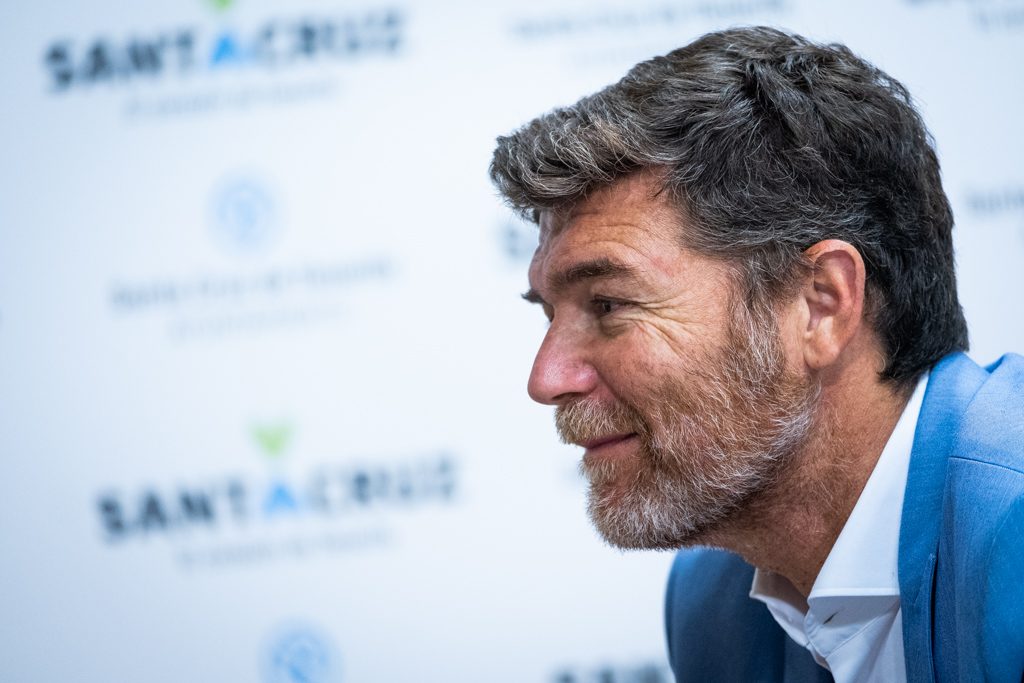
The Councilor for Public Services of the Santa Cruz de Tenerife City Council, William Diaz Guerra (PP), does not see “any political significance” in the Victory Monument, popularly known as the monument to Franco, and therefore justifies the study for the implementation of the fountain it houses.
In statements to Cope TenerifeDíaz Guerra has assured that it is “a magnificent, monumental fountain”, and that it has never had “any political meaning” for him, and he believes that “99% of the people” agree with that.
“It is true that there is a law -of Historical Memory- that says that for some people it has another meaning”, has admitted the popular mayor, who has added that as a public official he cannot have “a deteriorating municipal heritage”.
Hence the study he has commissioned to see how much money it would cost to start up the fountain, located between Rambla de Santa Cruz, formerly Rambla del General Franco, and Anaga Avenue.
Díaz Guerra understands that this fountain, once started up, would be “a tourist attraction”.
Sí Podemos Canarias and United We Can warned this Friday that this intervention “attempts against the Law of Historical Memory of the Canary Islands.”
Both formations reject any measure that implies the recovery of a space that honors “the atrocities committed by the Franco dictatorship, which violates the Canary Islands Historical Memory Law and, therefore, against all the people who were killed or reprisals during the same ”.
The insular group of Sí Podemos Canarias defends that “the councilor is not the one” to decide to launch this fountain unilaterally “according to a purely personal criterion under which it considers this element as part of the Santa Cruz heritage”.
In this regard, they recall that the monument “is not even considered, nor does it deserve consideration” as an Asset of Cultural Interest (BIC), as has been accredited by the Cabildo de Tenerife and the University of La Laguna. Sí Podemos Canarias affirms that as a result of the request for its protection, promoted by an association sympathetic to the Francoist totalitarian regime “which ironically and inconceivably forms part of the Insular Historical Heritage Commission of the Cabildo”, it has once again been confirmed “that the sculpture exalts the figure of the dictator” and does not gather artistic or patrimonial values that deserve its protection.
All this makes it clear that compliance with the Canary Islands Historical Memory Law must be respected “and proceed to the definitive withdrawal of this element, since it exalts anti-democratic historical values and facts that caused suffering and backwardness in this land,” he adds. In addition, Sí Podemos Canarias recalls that in a plenary session held last November, all the political groups present in the Cabildo adopted an institutional agreement for the withdrawal of all the distinctions and honors that Franco received on the island, something that does not mean ” but to comply with the law, which is why it is even more intolerable that the City Council of the capital continues to allow the presence of Francoist vestiges in public spaces”.
Guillermo Díaz Guerra has argued today that “at this time there is no resolution that obliges us to demolish that monument, that fountain”, and has added that “if we have to redefine that fountain, we can possibly preserve the entire ornamental part of the water supply and maintenance of the pond, which is what our work is limited to”.
“If tomorrow we receive a judicial or administrative decision that forces us to demolish the fountain, we will see what we should do, but my obligation is to know how much it costs us to fix it,” he insisted.
















